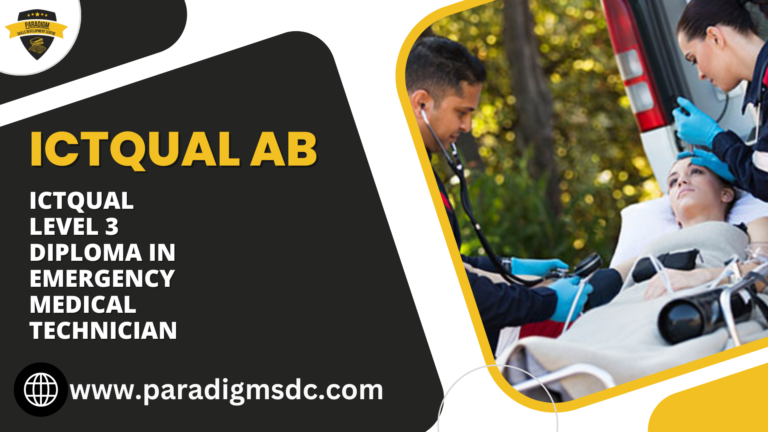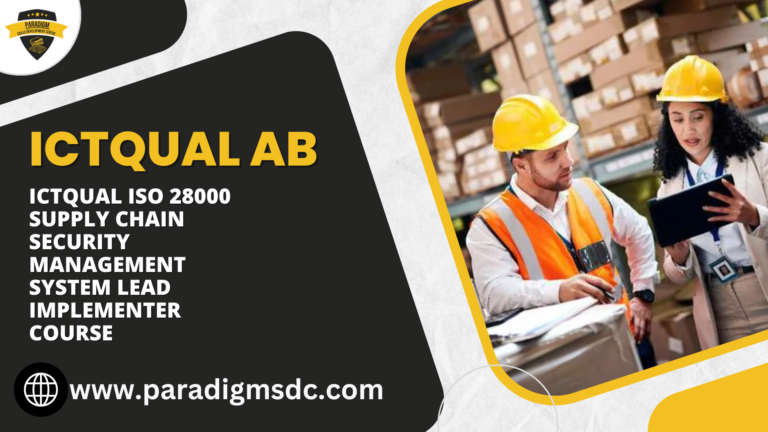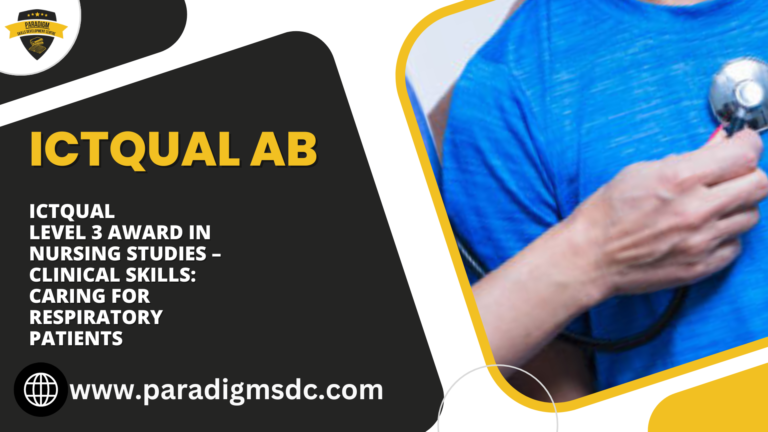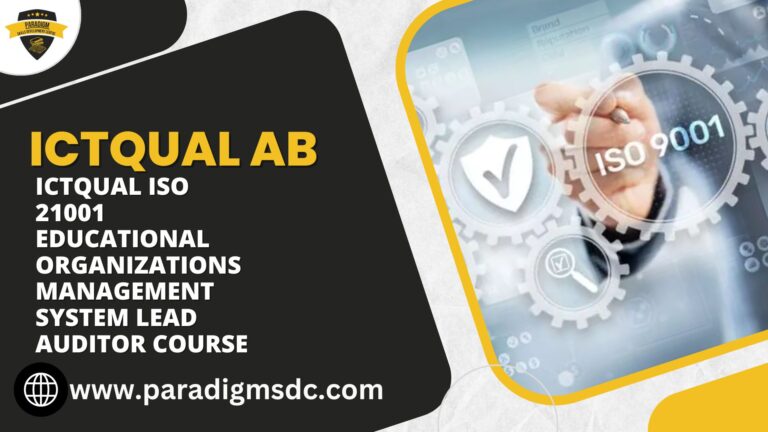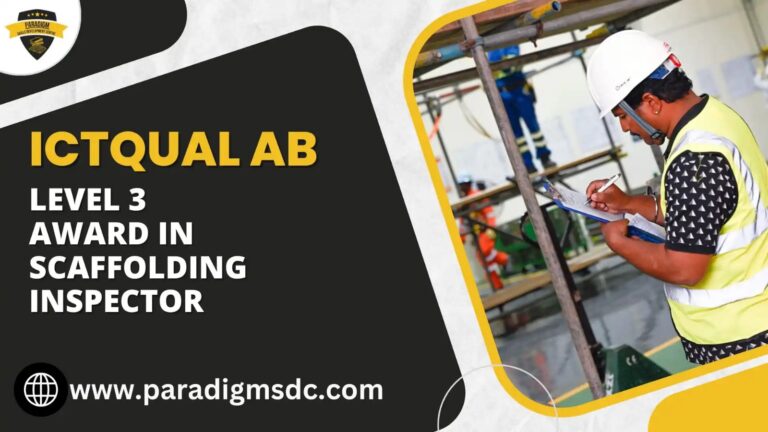Course Introduction
The ICTQual Level 2 Award in Food Safety in Catering is designed to provide learners with essential knowledge and skills to maintain high standards of food safety and hygiene in a catering environment. This course is crucial for anyone working in the food industry, helping them understand and implement food safety practices to ensure the well-being of consumers and compliance with legal requirements.
Course Overview
Food safety is a fundamental aspect of the catering industry. Improper food handling and hygiene practices can lead to serious health risks, including foodborne illnesses. This course covers both theoretical and practical aspects of food safety, focusing on the principles of food hygiene, risk assessment, and the application of effective safety measures. Through a combination of classroom instruction and practical sessions, participants will gain a comprehensive understanding of how to maintain food safety in a catering setting.
Course Study Units
- Introduction to Food Safety and Hygiene
- Microbiological Hazards
- Food Poisoning and Foodborne Illnesses
- Contamination Hazards and Controls
- Safe Food Handling Practices
- Personal Hygiene in Catering
- Cleaning and Disinfection
- Allergen Awareness and Control
- HACCP Principles
- Food Safety Management Systems
- Legal Responsibilities of Food Handlers
- Food Safety Supervision and Monitoring
Learning Outcomes
Upon completing this course, learners will be able to:
- Introduction to Food Safety and Hygiene
- Understand the fundamental principles of food safety and hygiene in catering environments.
- Recognize the importance of maintaining high standards of hygiene to prevent food contamination and foodborne illnesses.
- Identify key legal requirements and regulations related to food safety in catering operations.
- Microbiological Hazards
- Identify common microbiological hazards in food, including bacteria, viruses, and parasites.
- Understand how microbiological hazards can contaminate food and cause foodborne illnesses.
- Implement control measures to prevent and minimize the risk of microbiological contamination.
- Food Poisoning and Foodborne Illnesses
- Recognize common types of food poisoning and foodborne illnesses, including their symptoms and causes.
- Understand the impact of foodborne diseases on public health and the catering industry.
- Implement preventive measures to reduce the risk of foodborne illnesses in catering operations.
- Contamination Hazards and Controls
- Identify different types of contamination hazards (physical, chemical, and biological) in food.
- Implement controls to prevent contamination during food handling, storage, and preparation.
- Understand the importance of maintaining a clean and hygienic food environment to minimize contamination risks.
- Safe Food Handling Practices
- Demonstrate proper techniques for receiving, storing, preparing, cooking, and serving food safely.
- Understand the principles of temperature control and how to monitor food temperatures effectively.
- Implement hygiene practices to prevent cross-contamination and ensure the safety of food products.
- Personal Hygiene in Catering
- Understand the importance of personal hygiene for food handlers in preventing food contamination.
- Demonstrate proper handwashing techniques and personal grooming practices.
- Recognize the significance of reporting illnesses and adhering to health and hygiene standards in catering establishments.
- Cleaning and Disinfection
- Understand the principles of cleaning and disinfection in catering environments.
- Identify appropriate cleaning agents and disinfectants for different surfaces and equipment.
- Implement effective cleaning schedules and procedures to maintain a hygienic food preparation area.
- Allergen Awareness and Control
- Identify common food allergens and understand their potential risks to consumers.
- Implement procedures to prevent cross-contact and allergen contamination in food preparation.
- Provide accurate allergen information to customers and ensure compliance with allergen labeling requirements.
- HACCP Principles
- Understand the principles of Hazard Analysis and Critical Control Points (HACCP) in food safety management.
- Identify critical control points in food production processes and implement control measures to ensure food safety.
- Develop and maintain HACCP plans to effectively manage food safety risks in catering operations.
- Food Safety Management Systems
- Understand the purpose and benefits of food safety management systems (e.g., ISO 22000).
- Identify key elements of food safety management systems, including documentation and record-keeping.
- Implement procedures to comply with food safety standards and regulations in catering establishments.
- Legal Responsibilities of Food Handlers
- Understand food safety legislation and regulations applicable to catering operations.
- Identify the legal responsibilities of food handlers and food business operators in ensuring food safety.
- Implement procedures to comply with legal requirements and maintain food safety standards in accordance with regulations.
- Food Safety Supervision and Monitoring
- Understand the importance of supervision and monitoring in maintaining food safety standards.
- Implement procedures to evaluate food safety practices and performance in catering operations.
- Identify areas for improvement and implement corrective actions to ensure continuous compliance with food safety standards.
Course Benefits
- Enhanced Food Safety: Equip learners with the skills and knowledge to maintain high standards of food safety, reducing the risk of foodborne illnesses.
- Legal Compliance: Ensure compliance with food safety regulations and legal requirements.
- Improved Consumer Confidence: Promote consumer trust by demonstrating a commitment to food safety and hygiene.
- Increased Efficiency: Implementing effective food safety practices can lead to more efficient operations and reduced waste.
Who is This Course For?
This course is ideal for:
- Food handlers and catering staff.
- Supervisors and managers in catering establishments.
- Health and safety officers in the food industry.
- Individuals seeking to enhance their employability in the catering sector.
- Anyone responsible for maintaining food safety standards in a catering environment.
Future Progression
Upon completing the ICTQual Level 2 Award in Food Safety in Catering, learners may consider advancing their knowledge and skills with further training opportunities, such as:
- ICTQual Level 3 Award in Supervising Food Safety in Catering: Advanced training for those in supervisory roles.
- ICTQual Level 3 Award in Health and Safety in the Workplace: Comprehensive training to enhance overall workplace safety.
- ICTQual Level 4 Award in Managing Food Safety in Catering: Extensive training for those seeking to take on higher-level roles in food safety management.
By completing this course, participants will be better prepared to ensure high standards of food safety and hygiene in their catering establishments, promoting a safer and more trustworthy environment for consumers.


